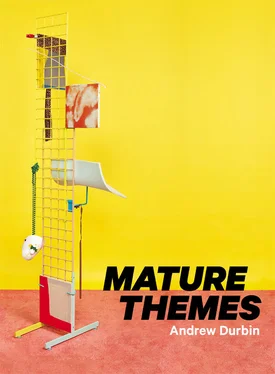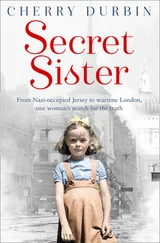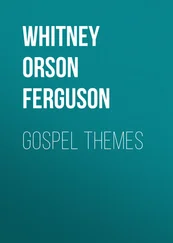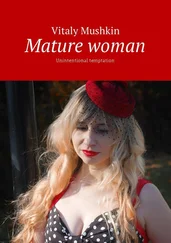Andrew Durbin - Mature Themes
Здесь есть возможность читать онлайн «Andrew Durbin - Mature Themes» весь текст электронной книги совершенно бесплатно (целиком полную версию без сокращений). В некоторых случаях можно слушать аудио, скачать через торрент в формате fb2 и присутствует краткое содержание. Год выпуска: 2014, Издательство: Nightboat Books, Жанр: Современная проза, на английском языке. Описание произведения, (предисловие) а так же отзывы посетителей доступны на портале библиотеки ЛибКат.
- Название:Mature Themes
- Автор:
- Издательство:Nightboat Books
- Жанр:
- Год:2014
- ISBN:нет данных
- Рейтинг книги:4 / 5. Голосов: 1
-
Избранное:Добавить в избранное
- Отзывы:
-
Ваша оценка:
- 80
- 1
- 2
- 3
- 4
- 5
Mature Themes: краткое содержание, описание и аннотация
Предлагаем к чтению аннотацию, описание, краткое содержание или предисловие (зависит от того, что написал сам автор книги «Mature Themes»). Если вы не нашли необходимую информацию о книге — напишите в комментариях, мы постараемся отыскать её.
is a hybrid text of poetry, art criticism, and memoir focused on the subject of disingenuity — and what constitutes "personal experience" both online and IRL when to "go deep" in a culture of so many unreliable communication technologies is to resend a text at 3 AM.
Throughout the book, Durbin’s voice mutates into others in order to uncover the fading specters of meaning buried under the pristine surfaces of art and Hollywood, locating below them the other realities that structure our experience of both.
Mature Themes — читать онлайн бесплатно полную книгу (весь текст) целиком
Ниже представлен текст книги, разбитый по страницам. Система сохранения места последней прочитанной страницы, позволяет с удобством читать онлайн бесплатно книгу «Mature Themes», без необходимости каждый раз заново искать на чём Вы остановились. Поставьте закладку, и сможете в любой момент перейти на страницу, на которой закончили чтение.
Интервал:
Закладка:
At the premier of The Beach , Leonardo DiCaprio stole away from the theater three times to the use the restroom. Sitting near him, I couldn’t help but notice him leaving so often, and decided after the third time he exited the theater to follow him to see if anything was wrong. Didn’t he like the film I’d adapted from the book I’d written? I pushed my way out of my row.
As I walked up the theater aisle, past friends glittering in the changing light of the projection, each smiling or nodding at me as they watched me pass by, I thought about the conditions under which I’d begun the novel. I had originally meant to set The Beach in New York in 2012. It was going to be about the hostilities of an emergent, troubling climate in which a flurry of deadly natural events wreck the lives of those living in the city. Shortly after Hurricane Sandy “compromised” the coast and shut down much of New Jersey, Staten Island, Brooklyn, and Manhattan, the news wrote my novel itself and I decided that I would invert the reality into a narrative of departure rather than arrival. I wanted to chase the storm, so I set my novel and my film at the beach, away from a city broken by the weather that would play no role in my work.
I entered the lobby and asked an attendant if he knew where Leo had gone. “He’s in the bathroom to the right,” he said. “He didn’t look well, actually. I think he’s planning to go.”
“Thanks,” I said. In the hallway that led to the bathroom, the theater piped in Katy Perry’s “Firework.” Its poppy burst of good feelings and helium-inflated enthusiasm for the body unleashed in a rush of heady endorphins, acceptance of anyone and everyone no matter who or what they are, felt incongruous outside my brittle, unsettling film, in the silent lobby with its dim lights that made even my most beautiful, famous friends look like strange ghosts, haunting the image of themselves. I pictured Katy throwing her arms open to Budapest in the music video, fireworks exploding from her breasts into the hot night and wished at the moment I was there with her, in Hungarian summer and not in New York’s brutal winter.
In the bathroom, I found Leo sobbing on the white tile floor. I rushed over to him.
“Are you OK?” I asked. He shook his head. “What’s wrong?”
“I’m not exactly sure, I guess… I just… it’s that I’m so rarely bothered by my own work, like upset by it. But for some particular reason The Beach feels different, almost like it’s this narrative for a career I don’t really want, from androgynous objet d’art to streetwise tough guy, a little fucked up by the world, yah, but still a real strong guy, if that makes any sense. Like do I want that? It gets under my skin with an energy that makes me feel so fucking strange.”
“That is strange,” I said. “I hadn’t meant it that way.”
“I know,” he said and began to cry again.
I held Leo for a few minutes before I asked him if he wanted me to call his driver. His red and tearstained face lit with real gratitude. “Could you?” he said. “I need to go home.”
I pulled out my cell and called his driver. I pulled Leo up and helped him out of the bathroom and into the lobby, where we waited for his driver. Tilda emerged from the theater and rushed over to us.
“Is everything all right?” Tilda asked.
“Everything is all right,” I said. “Leo isn’t feeling well, so I’m sending him home.”
The driver appeared in the lobby and Leo went to him. Tilda and I followed them outside, to the corner of the street and the avenue where the driver double-parked the car.
We watched Leo get into the limo, waved goodbye, then returned to The Beach , just as, on screen, our star jumped off the waterfall, into the river that would take him to Tilda.
In Apocalypse Now , US special operations officers reverse the geographical trajectory of The Beach by going away from it, into the jungle, where they meet the tribe where Kurtz has installed himself as an unflinching, totalitarian leader. In a moment of extra-literary affinity, Brando quotes T. S. Eliot’s “The Hollow Men,” which has an epigraph from Heart of Darkness . On a micro-level, the US special operations officers are tasked with the same objective as that of the greater US military in Vietnam: intervention in an emergent political order so that its potentially harmful aspects are neutralized and non-Communist leadership is restored. Despite their small number relative to Kurtz’s slaves, they succeed; however, in killing the American and setting the Vietnamese free, they pre-stage the eventual failure of the American invasion of Vietnam, the Vietcong’s defeat of the imperialist overlord and its acid-bombing campaigns across the landscape. The Beach defuses the imbalances of competitive polities, entraps the unraveling plot to reincorporate disambiguated bodies into a tribe of limitless potential. Great spray of light across Thailand. The beaches were untouched before my film crew arrived; we destroyed the landscape to create paradise. The dunes were removed as were many of the palm trees in order to create the site of bliss in the audience’s mind. I saw the film, I went down to the beach, I removed my shoes. A little crab walked in front of me. I watched as it scuttled by slowly until it buried itself in the sand.
Once, when I was writing my novel, I went into one of the very last dive bars in lower Manhattan and met a veteran from the Gulf War. It was after Halloween, the hurricane had passed, and the power had been restored to the city. I sat at the bar drinking a whiskey on the rocks when he approached me from behind and asked if I wanted to have sex with him in the bathroom. He had a massive, muscular figure shaped like an inverted pyramid. He wore fatigues and was covered in tattoos so worn down by exposure to the sun that they looked like Rorschach blots on his skin.
Swaying, he slung his arm around me and said, “You’d have fun.” I told him no and asked where he was from. “Virginia. But I was stationed here after Iraq and I’ve never left.” We talked about the war, and I wondered if he had been responsible for the deaths of children. “If you won’t sleep with me,” he said, “I’m going to just go jerk off in the toilet. Do you want to join me?” he said. “I’ll be in the toilet.”
I watched him disappear into the back. Thirty minutes later he was found soaked in his own urine, passed out between the toilet and the wall. The bouncer dragged him out into the street while the bartender called the police.
Leonardo DiCaprio directed his driver to take him to beach. When they arrived at Far Rockaway, he asked him to wait while he went down to the water to think. The sky was the color of steel, the mottled gray of New York in winter, generalized and monolithically opposite the lightness of coming spring, when Leo would finally be at play. The dunes had been mostly destroyed by Sandy, replaced by Christmas trees lying in neat rows along the coastline. The branches caught the sand flying up from the water toward the streets and homes. Eventually they would be covered up, restoring the dunes to how they once were. Leo took his headphones out and stuffed them into his coat pockets. He walked down to the waterline and looked at the ocean. It felt like nothing, only the huge swelling of the absence of things, present for him but at the same time annihilating — a vector in a dream he slides down into oblivion. Damage is unplanned obsolescence that contradicts the order of things. Katy Perry in Budapest, Leo at the beach. Damage is a reminder that glamour is contingent on its destructibility. He placed his hands in his coat pockets and thought about what to do next, whether he would return to the theater or fly home, back to Los Angeles. Despite how cold it was, he felt warm, and the moment of seeing a piece of cardboard fly into the sea generated in him the weird desire to say to the accumulating waves, “I haven’t told you of the most beautiful things in my lives, watching the ripple of their loss disappear along the shore, underneath ferns, face downward in the ferns my body, the naked host to my many selves, shot by a guerilla warrior or dumped from a car into ferns which are themselves journalières . The hero, trying to unhitch his parachute, stumbles over me. It is our last embrace. I have forgotten my loves, and chiefly that one, the cancerous statue, which my body could no longer contain, and against my will, against my love, become art. I could not change it into history and so remember it. I have lost what is always and everywhere present, the scene of my selves, the occasion of these ruses, which I myself and singly now must kill to save the serpent in their midst.”
Читать дальшеИнтервал:
Закладка:
Похожие книги на «Mature Themes»
Представляем Вашему вниманию похожие книги на «Mature Themes» списком для выбора. Мы отобрали схожую по названию и смыслу литературу в надежде предоставить читателям больше вариантов отыскать новые, интересные, ещё непрочитанные произведения.
Обсуждение, отзывы о книге «Mature Themes» и просто собственные мнения читателей. Оставьте ваши комментарии, напишите, что Вы думаете о произведении, его смысле или главных героях. Укажите что конкретно понравилось, а что нет, и почему Вы так считаете.











